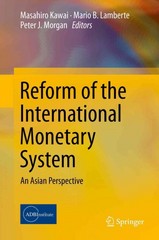Question
Critical thinking Assess if the statement below is TRUE (always correct), FALSE (always wrong) or UNCLEAR (meaning correct under some circumstances, wrong under other circumstances
Critical thinking
Assess if the statement below is TRUE (always correct), FALSE (always wrong) or UNCLEAR (meaning correct under some circumstances, wrong under other circumstances to be explicitly defined).
Question 1: The loan made by an ADI to a non-ADI borrower increases private money at the time of the lending but, in net, decreases private money over the life of the loan.
Question 2:
Transfer of knowledge to a new context
Imagine an hypothetical world in the future where households and businesses do not have bank deposits in banks but hold an account at the central bank instead, through which they own central bank digital currency (CBDC). In that new world, banks do not offer deposits but still provide loans.
- In that new world, does the payment system need ESF? Explain your answer in depth.
- Assume banks, households and businesses all have an account at the central bank with CBDC. A bank pays its employee $3,000 with CBDC and makes a $10,000 loan to a businesses in CBDC. Represent the effect of these two transactions on the bank's balance sheet and on the central bank's balance sheet. Do these transactions increase the stock of money in the economy? Explain your answer in depth.
- If some households decide to convert their CBDC into banknotes, will the central bank be in difficulty? Explain your answer in depth.
Step by Step Solution
There are 3 Steps involved in it
Step: 1

Get Instant Access to Expert-Tailored Solutions
See step-by-step solutions with expert insights and AI powered tools for academic success
Step: 2

Step: 3

Ace Your Homework with AI
Get the answers you need in no time with our AI-driven, step-by-step assistance
Get Started


